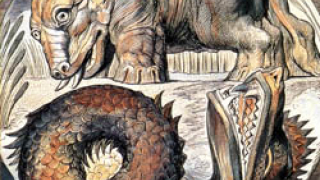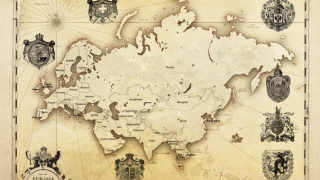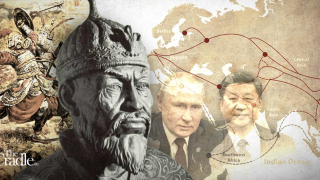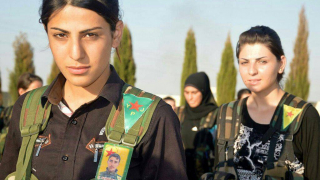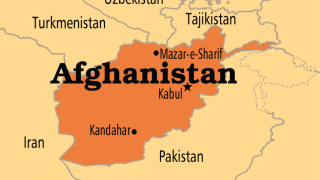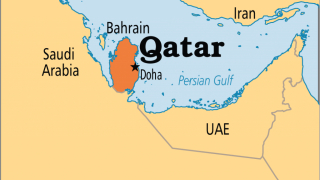Eurasian Doctrine of Kazakh President Nursultan Nazarbayev: "Thinking space"
24.01.2013
Kazakhstan becomes a nodal point of the post-Soviet space today. In this context it should be considered not as an ordinary state, balancing between global "centers of power", but as a key element of the great intercivilizational zone stretching through the whole of Eurasia. Whether the zone stays what it was for centuries - the "inner corridor" of Eurasia, separating or linking its civilizations, depends on the Kazakhstan’s fate. That fact brings us inevitably to the geopolitical problems.
It should be noted that for many years Central Asia has been the object of interest for geopoliticians. From the point of view of traditional geopolitics Eurasia is not just a "gap" between "Great Europe" and "Great Asia" - but it is a special cultural and civilizational world, a self-organizing "great space."
It should be observed that the debate about the nature and purpose of space in modern geopolitical thought is far from being over. Positivist science of political geography focuses on the phenomena of "objective" external character: the balance of weapons, geographical location of transit infrastructures, etc.
Traditional geography and geopolitics are based on the idea of ontological heterogeneity of terrestrial space, on the prevalence of anthropological, civilizational, religious and spiritual factors in determination of the fate and vocation of many nations.
For example, modern French researchers do not like to call themselves "geopoliticians", but consider themselves most likely as geographers working at the intersections of geography and history. These sciences, in particular, express their deep surprise that in Germany they still speak about the “Space” (“Raum”) or the "Big space» (“Grossraum”) in the geopolitical discourse.
The concept of “space” is considered “empty” or “abstract” by French researchers, who consequently prefer speaking about the “territory” which they link to the interests of a certain community and a “collective identity formation”. As a result, according to the French approach the geopolitics itself is defined as the “analysis of contradictions among different types of power institutes of the territory” [1], which narrows the object to geopolitical study, replacing it actually with political geography.
At the same time, within the Eurasian geopolitical research school the desired synthesis has been carried out, and as a result the category of "space" has acquired human, historical, cultural and civilizational contents. That synthesis was embodied in the concept of "local development" which denotes the inseparable connection of space with history and destiny of individuals, societies and nations, with the unique cultural characteristics of the civilization.
As an example of such a "local development" (a model of political, social and economic development which character is defined by country or region location) can be considered as Eurasia in general, so Kazakhstan with its great strategic power as the integral part of “Eurasian space”. What does "to think space" mean, for the founders of states and prominent public figures in this context?
From the author’s point of view it means, first of all, the possibility to correlate spatial, cultural, civilizational and socio-economic characteristics of the states they head with the logic of their history and contemporary political process, and the possibility to draw up the domestic and foreign policy course according to the long-term national, regional and global political trends.
One of the founding fathers of classical geopolitics theory K. Haushofer has the same point of view on the “Big space” concept. Speaking on formation of continental alliance connecting European and Asian continents he supposes that “every considerable formations and structures don’t appear ready from the head of some great statesman like the famous Greek goddess of war in her stately spiritual image. A competent person knows that the creation of such formations is a long-term process. I am pleased to admit young colleagues-geographers that I must produce evidence on the formation of a new Euro-Asian continental policy perhaps, more than any other senior representative of the geographical science ". [2]
The fullest realization of “thinking space” tendency has been found in eurasianism - the movement of Russian intellectuals emigrant groups connected on the first place with the attempt of understanding the origins and consequences of the October Revolution. The movement itself appeared in 1921 in Prague and Sofia, and was founded by four young emigrants from Belorussia - P. Savitsky, geographer, P. Suvchinsky, musicologist, N.Trubetskoy, philologist and Slavicist, Father G. Florovsky, religious philosopher and publicist. Among them there were such prominent Eurasians as religious thinker L.P. Karsavin, famous historian G.V. Vernadsky, lawyer and political scientist Nikolai Alekseev, orientalist V. Nikitin, writer V. N. Ivanov.
Much has been said on strong and weak sides of Eurasianism in the historiographical literature. It is admitted that Eurasianism is one of the most significant political theories of the twentieth century bringing up the question on determination of Eurasia’s place in the world. The fact that Eurasians find grounds for necessity of harmonious coexistence of Slavic and Turkish people, Orthodox Christianity, Islam and Buddhism, as a guarantee of integrity and stability of the post-Soviet space are also very important.
In parallel the negative sides of the Eurasian doctrine are accentuated. It's pretty clear that when taken to the extreme Eurasianism can act as an ideology justifying totalitarian and autarchic model, causing isolation from the West.
How do the subsequent interpretation of this doctrine reproduce and (or) overcome the disadvantages of the "classical Eurasianism"? Perhaps the biggest scientific interpreter of the Eurasianism ideology is Lev Gumilev (1912 - 1992) – a famous Russian historian, anthropologist and philosopher, author of the original teaching about the nature and life of ethnic groups - ethnology. His decade stay at the camp with one of the founders of Eurasianism Peter Sawicki influenced much on his views formation.
Actually there were three main ideas of Gumilev’s "Eurasian conception": the first two were adopted, the third was original. The first of them considers the Russian Empire and the USSR historical forms of Eurasian statehood, coming from the empire of Genghis Khan. The second defines the Turkic and Muslim Eurasian peoples as Russian natural allies in their fight against West expansion, as it is equally fatal to any of the "Eurasian power" to unite with it. [3]
However, despite the original and profound Gumilev’s interpretation of Russian history, Eurasianism remained for him mainly a geopolitical metaphor. The prominent Russian historian and ethnologist has not formulated yet his specific proposals to arrange the political and socio-economic life of Eurasian countries and peoples. It took time to perceive deeply and completely his ideas.
And the time has come. 1990s was the time of large-scale policy changes related to political self-determination and self-assertion in the post-emerging new nation-states, with special and important place occupied by Kazakhstan. At the same time, the 1990s was the period of an increasing interest to the Eurasianism and the conception of underestimated outstanding scientist L. Gumilev.
To bring the key imperatives of Eurasianism to life its entirely new interpretation has been required, as well as the escape from the "mythopoetic" shade, specification of its cultural and civilizational imperatives. This kind of a "modernization" of the Eurasian studies could be used for searching for the most appropriate model of economic and political organization of the post-Soviet space.
Thereupon it is no mere chance that the most active and consistent supporter of the Eurasian concept concerning modern political realities is the president of the Republic of Kazakhstan Nursultan Nazarbayev. The leader of a young and dynamic state saw its realization in his project of the Eurasian Union, subsequently implemented in practice in the model of the Eurasian Economic Community (EAEC), and the Customs Union of Russia, Kazakhstan and Belarus founded in 2010.
The Eurasian Union project declared in the mid 1990s yet, was supposed to unite new independent CIS states (conserving their political sovereignty) into a common economic space. A little later, N. Nazarbayev repeated his offer with a new meaning - he proposed the creation of the Eurasian Economic Union. This project, as experience has shown, had the fundamental political, historical and cultural base as a result of the Kazakhstan’s specificity as a Eurasian power. The ideology of Eurasianism was officially recognized in Kazakhstan, and one of Kazakhstan's leading universities - the Eurasian National University in Astana - was named after a prominent ideologist of Eurasianism Lev Gumilev.
In general we can distinguish following basic features of the "Eurasian concept" by President Nursultan Nazarbayev. In the author’s opinion, they consist in a firm compliance with the following principles:
1) A realistic character, absence of "the ideology primacy";
2) The tendency to connect firmly the idea of "Eurasian integration" in the post-Soviet space with the purposes and objectives of modernization;
3) Focus on the priority of interests of the Republic of Kazakhstan as a sovereign independent State;
4) Realistic reflection of the current state of "the post-Soviet space" and main trends of its development.
5) Review of the prospects of "Eurasian integration" in the context of a multidirectional strategy adopted by the Kazakh government.
6) The tendency to close coordination of the economic and political integration.
7) consulting not only Kazakh and Russian interests within the "Integration Project," but the interests of Central Asian states as well. [4]
What factors ensure the success of the geopolitical position of Kazakhstan? Firstly, as Kazakh experts noted, Kazakhstan, represented by the leader Nursultan Nazarbayev, has a strong political will. Secondly, after years of independence Kazakhstan has practically implemented its will in the unique economic, social, political and humanitarian projects of modernization. Thirdly, the Republic of Kazakhstan is the heir of the centuries-old nomadic culture, which passionarity has strongly affected the global world formation since ancient times. Today this passionarity has been realized in proposing a number of initiatives answering the meaning and the essence interpreted in the frames of the contemporary Eurasian doctrine.
It is president Nazarbayev who has consistently been reinforcing the status of Kazakhstan as the leader country of the Central Asian region, who seeks to carry out in practice Eurasian principles interpreted in a modern key without confirming to politics or economics. Nursultan Nazarbayev is also an author of cultural and civilizational initiatives (World and traditional religions forum) in the contemporary crisis of the world and is trying to strengthen the dialogue between countries, civilizations and continents. Kazakhstan, a member of the main important institutions of post-Soviet space (CSTO, EurAsEC, Customs Union) and international organizations (the Organization “the Islamic Conference”), expanding its cooperation with the European countries within the OSCE, can play a very important role in establishment and realization of the multilateral partnership.
All these achievements and efforts could not stay unnoticed by western and eastern leaders. In this context it is not surprising that for the past several years, many states, representing those cultural civilizational "worlds", seek the partnership with Kazakhstan as a promising economic partner and a key political actor in the complex and little predictable Central Asian region.
Due to the realization of complex strategies by the leader of the nation modern Kazakhstan successively transforms into the Eurasian hub, one of the most dynamic and stable states in the territory of the CIS. At the same time, it serves a good example of inter-ethnic and religious tolerance, moderate Muslim country that has become a sort of a "bridge between East and West."
Domestic policy strategy of Kazakhstan answers the Eurasian imperatives, particularly in the field of nation-building politics. Over the centuries destinies of many people with different cultures, religions and traditions crossed on the historical Kazakh land. So the unique situation was created in when representatives of 140 ethnic groups and 40 confessions live peacefully together with the Kazakhs. Meanwhile a long-term cohabitation of different ethnic groups has formed a strong tradition of tolerance in the society.
Thus, today there are all necessary foundations for leaders, elites and peoples of Russia, Kazakhstan and Belarus to make a new decisive and qualitative step to the “Eurasian integration” - the orientation founded in the early 1990s by the national leader, president of Kazakhstan, Nursultan Nazarbayev, who has updated and is filled in the ideology of Eurasianism with a modern and concrete meaning.
Cited literature:
1. Lacoste Y. Fuer eine neue und umfassende Konzeption der Geopolitik // Welttrends. – 1994. - № 4. – P. 24.
2. Хаусхофер К. Континентальный блок // Элементы. – 1997. - №7. – P. 32.
3. Гумилев Л. Н. Заметки последнего евразийца. // Наше наследие. – 1991. - № 3. - P. 24 - 26.
4. Назарбаев Н. А. Евразийский союз: идеи, практика, перспективы, 1994-1997. – М.: Фонд содействия развитию соц. и полит. наук, 1997. – 497 p.
English translation by Natalia Biryukova


